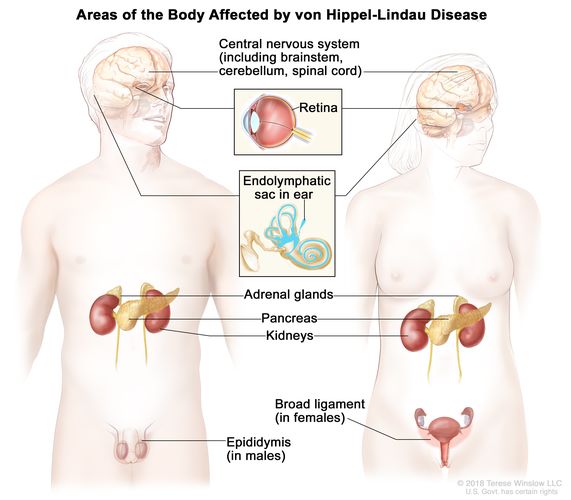von Hippel-Lindau syndrome
(von HIH-pul-LIN-dow SIN-drome)
A rare, inherited disorder that causes tumors and cysts to grow in certain parts of the body, including the brain, spinal cord, eyes, inner ear, adrenal glands, pancreas, kidney, and reproductive tract. The tumors are usually benign (not cancer), but some may be malignant (cancer). Patients with von Hippel-Lindau syndrome have an increased risk of certain types of cancer, especially kidney cancer and pancreatic cancer. The signs and symptoms of von Hippel-Lindau syndrome usually do not appear until young adulthood. It is caused by a mutation (change) in the VHL gene. Also called VHL disease, VHL syndrome, and von Hippel-Lindau disease.
